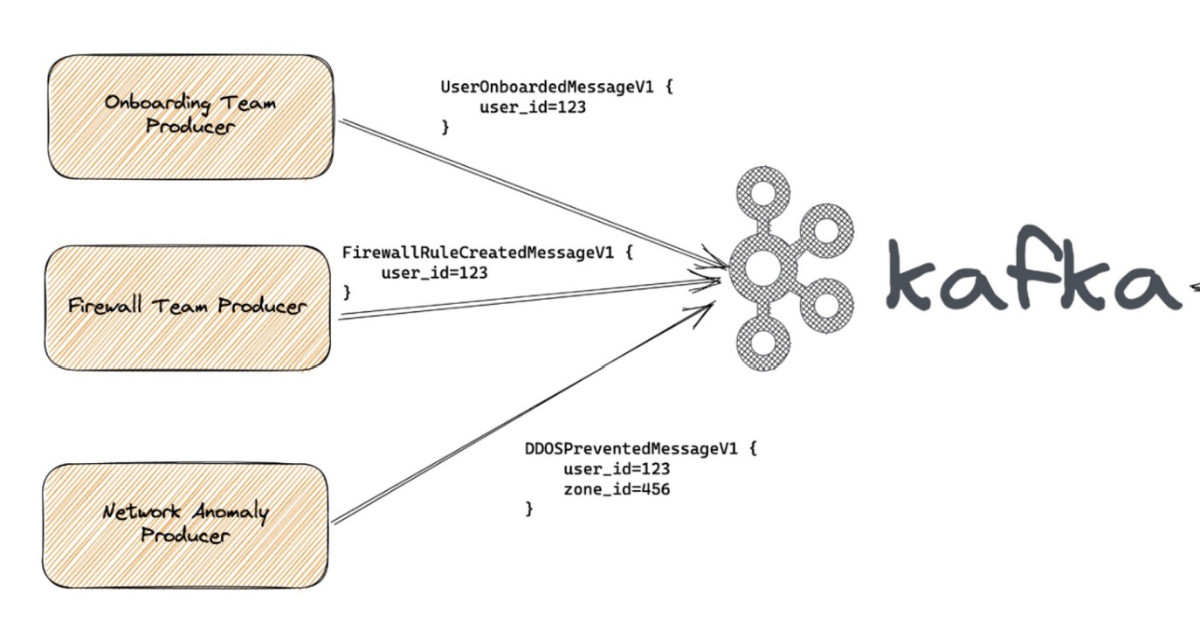Cloudflare, a leading internet security and infrastructure provider, has been widely praised for its ability to deliver secure, fast, and reliable online services to businesses and individuals around the world. One of the key technologies that has helped Cloudflare achieve this success is Apache Kafka, an open-source distributed event streaming platform that enables real-time data processing at scale. In this article, we’ll take a closer look at how Cloudflare uses Kafka to power its platform and the challenges they’ve faced along the way.
Introduction
Cloudflare is a company that provides a range of online services, including website optimization, content delivery, and cybersecurity solutions. To deliver these services, Cloudflare has built a massive global network of servers that process huge amounts of data every day. To ensure that this data is handled in real-time and at scale, Cloudflare has turned to Apache Kafka.
What is Kafka?
Apache Kafka is an open-source distributed event streaming platform that was first developed at LinkedIn. It enables real-time data processing by allowing data to be ingested, processed, and stored as events. Kafka is designed to be highly scalable and fault-tolerant, making it a popular choice for companies that need to handle large amounts of data.
How Cloudflare uses Kafka
Cloudflare uses Kafka in a number of ways across its platform. One of the primary use cases for Kafka is in its real-time log processing pipeline. Cloudflare’s network generates a huge amount of log data, which needs to be processed and analyzed in real-time to detect and respond to security threats, performance issues, and other events.
Kafka enables Cloudflare to ingest this log data and store it in real-time, allowing the company to quickly process and analyze the data to identify trends and patterns. This is essential for maintaining the security and performance of Cloudflare’s network, as well as providing valuable insights to its customers.
Challenges faced by Cloudflare
While Kafka has been a critical component of Cloudflare’s success, it has also presented some challenges along the way. One of the biggest challenges has been managing the massive amount of data generated by Cloudflare’s network.
To address this challenge, Cloudflare has had to implement sophisticated data management strategies, including partitioning data across multiple Kafka clusters and using custom data retention policies. Additionally, the company has had to develop advanced data processing and analysis tools to make sense of the vast amount of data generated by its platform.
Conclusion
In conclusion, Kafka has been a critical component of Cloudflare’s success in delivering fast, secure, and reliable online services to businesses and individuals around the world. By enabling real-time data processing at scale, Kafka has allowed Cloudflare to ingest and analyze massive amounts of data generated by its network, providing valuable insights and ensuring the security and performance of its platform.
However, managing the vast amounts of data generated by Cloudflare’s network has presented some significant challenges, which the company has addressed through sophisticated data management and processing strategies.
If you’re interested in learning more about how Kafka is used at Cloudflare, there are many resources available online, including blog posts, case studies, and documentation.
FAQs
- What is Apache Kafka? Apache Kafka is an open-source distributed event streaming platform that enables real-time data processing at scale.
- What is Cloudflare? Cloudflare is a company that provides a range of online services, including website optimization, content delivery, and cybersecurity solutions.
- How does Cloudflare use Kafka? Cloudflare uses Kafka to ingest and process huge amounts of log data generated by its network in real-time, enabling the company to quickly detect and respond to security threats, performance issues, and other events.
- What challenges has Cloudflare faced with Kafka? One of the biggest challenges has been managing the massive amount of data
- What data management strategies has Cloudflare implemented to address the challenges posed by Kafka? Cloudflare has partitioned data across multiple Kafka clusters and implemented custom data retention policies. Additionally, the company has developed advanced data processing and analysis tools to manage and make sense of the vast amount of data generated by its platform.
- How can businesses benefit from using Kafka? By enabling real-time data processing and analysis at scale, Kafka can help businesses gain valuable insights into their operations, detect and respond to security threats and performance issues quickly, and improve the overall performance and reliability of their platform.
In conclusion, Kafka has emerged as a crucial technology for businesses that need to handle large amounts of data in real-time. Cloudflare’s use of Kafka is a testament to its versatility and effectiveness in enabling real-time data processing and analysis at scale. As more companies continue to adopt Kafka, it is likely that we will see even more innovative use cases emerge, leading to more efficient and secure online services for businesses and individuals around the world.





